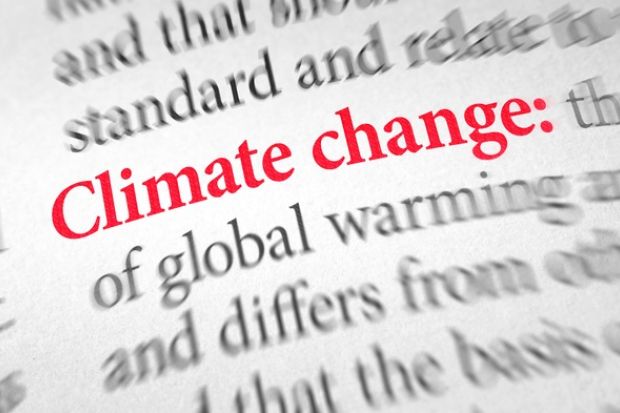“Listen to the scientists,” Greta Thunberg told the US Congress in 2019. No doubt the young Swedish environmental activist would say the same to the thousands of delegates from all around the world currently gathered at the COP26 climate talks in Glasgow.
COP conferences are of enormous symbolic, policy and fiscal importance. There is no larger shop window where media, political and policy attention focuses on environmental challenges. For these reasons, lobbyists and competing interests strive for access and to make their voices heard. This only adds to the fiendish complexity of reaching a sustainable agreement.
Of course, the political and scientific realms are not separate. Researchers and research inform policy negotiations in various ways, while political agendas – not to mention funding priorities – filter through into research projects. So if the politicians are indeed to listen to the science, it’s not so much that science needs to speak up but that it needs a good interpreter.
Clear data that inform policy are obviously important, but there’s a lot of behavioural and cultural insights from social sciences and humanities research that need to make their way into the COP discussions if substantial progress is to be made. Even when scholars and subject experts are granted a voice at the political table, the agenda tends to be dominated by techno-managerialist approaches and considerations. And that is reflected in what gets funded; one recent study of global research spending over recent decades found that the natural and technical sciences received 770 per cent more funding than the social sciences for research related to climate change.
The Intergovernmental Panel on Climate Change’s report on the effects of a temperature rise of 1.5 degrees above pre-industrial levels outlines why and, crucially, how to respond to the climate crisis. Yet while climate science is rapidly advancing, the pace of political and social change remains glacial. That is because even though reports like this lean on some of my own research on the role of community in the transition to low-carbon futures, it’s clear that physical sciences, as well as more quantitative social sciences such as economics or geography, are not enough to elicit political or behavioural change by themselves.
Of course, I am not the first to make this point. Indeed, it is something of a commonplace for academics from the humanities and social sciences to point out that “the science” doesn’t automatically, or even easily, translate into new policies and norms. But I am involved in a novel attempt to find a route through this impasse, by trying to make insights from social sciences and humanities more visible on their own terms.
Throughout the 12 days of COP26, I am co-organising a public exhibition with the University of Glasgow media academic Dom Hinde. The exhibition, held in Glasgow, consists of writing and images from more than 20 humanities and social science researchers from around the world who engage with climate change – mostly members of the Munich-based Rachel Carson Center for Environment and Society’s alumni network, a 200-person-strong group of researchers in the environmental humanities, including sociologists, historians, policy experts, media scholars and literature academics.
The exhibition aims to highlight their research not in a translated, diluted form but in an artistic way, through which it can speak with its own voice, on its own terms. We are also showing a documentary film, staging talks by experts from academia and civic society, and hosting two public engagement events with United Nations agencies. We aim to connect with important policymakers at the local, national, European and global level.
Part of the issue is that the humanities rarely present politicians with obvious, urgent action points or objectives. Rather, they present us with a more reflective outlook on what our collective orientations look like: what they allow us to see or, more worryingly, hide. By hosting workshops, disseminations and policy and practice fora in rooms full of clear and concise insights from environmental humanists and social scientists, we hope to show that, nevertheless, humanities research, on its own terms, can reorient policy discussions towards the spiritual and transitional and more fundamental challenges of climate change.
In a way, the exhibition is a useful metaphor. It embodies humanities research as a context in which more focused and targeted discussions can be had.
Gerald Taylor Aiken is a research associate at the Luxembourg Institute of Socio-Economic Research.
Register to continue
Why register?
- Registration is free and only takes a moment
- Once registered, you can read 3 articles a month
- Sign up for our newsletter
Subscribe
Or subscribe for unlimited access to:
- Unlimited access to news, views, insights & reviews
- Digital editions
- Digital access to THE’s university and college rankings analysis
Already registered or a current subscriber? Login









